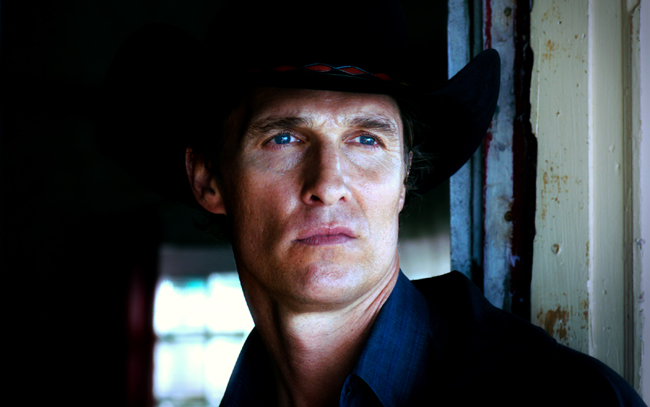It’s rare that a film slapped with an NC-17 rating doesn’t opt to defang a bit, since the cultural stigma that comes with the rating can be a death sentence. But thankfully, William Friedkin’s “Killer Joe” wears the rating like a badge of honor. It’s debatable whether the film’s content earns the notorious NC-17. It’s more likely that the film’s nasty, sweaty Southern noir aesthetic earned its rating, but that same aesthetic is responsible for its entertainment value.
Based on the play by Tracy Letts, “Killer Joe” is propulsive and stylish from the first scene, which finds Chris (Emile Hirsch) roping his father Ansel (Thomas Haden Church) in on a scheme to kill his mother so he can use the insurance money to pay off a drug debt. Enter Joe (Matthew McConaughey), a Dallas cop who moonlights as an assassin and demands cash in advance. Unable to pay, Chris agrees to offer up his virginal sister Dottie (Juno Temple) as collateral, not betting his scheme will go awry, which it inevitably does.
McConaughey is on an astounding hot streak right now, and “Killer Joe” is the crown jewel of his year so far. He has built his entire career charming his way through romantic comedies, and “Killer Joe” brilliantly reappropriates that same demeanor, turning that silky charisma into something much darker and more predatory. McConaughey is utterly magnetic in every scene, and as his Joe becomes more and more manic and his cool blue eyes take on a terrifying iciness, the film intensifies along with him.
The film focuses on one of the most violently dysfunctional families this side of Rob Zombie, and all of its central figures are wonderfully acted. Hirsch brings an angry desperation to his role, and watching his slow descent into Joe’s clutches is fascinating. Gina Gershon plays Ansel’s second wife, and her take on the femme fatale is absolutely fearless. Church is a hilarious buffoon, and while that’s the only real note he gets to play, he wrings every laugh possible out of it. Temple has perhaps the most challenging role to play as the object of Joe’s affections. Her Dottie is a girl in a woman’s body, and Temple shows an undeniable knack for delivering Letts’ monologues with a soulful Southern twang. As her character shifts into the center of the film’s conflict, Temple navigates truly troubling material with grace and skill, developing into the film’s sole sympathetic figure.
Letts adapted his 1998 play for the screen and his dialogue crackles throughout the film, veering from vulgar tension-building to eloquent Southern poetry. The script weaves a tangled web of despicable characters in inescapable situations, and the way the film slowly lets each character rack up a stable of frustrations with one another before letting all hell break loose in an explosive final sequence as equally merciless as it is gratifying.
“Killer Joe” is Friedkin’s second collaboration with Letts after 2006’s “Bug,” and it has been a bountiful partnership so far. “Killer Joe” finds Friedkin in top form, and the film is a stylish pastiche of Southern pulp from its very first scene. Friedkin approaches his characters with broad strokes and a heavy hand, and the way he’s unafraid to let a scene wear its stage roots proudly while still filling it with his own flourishes makes for several riveting moments.
Much of the attention “Killer Joe” gets is going to focus on its final scene, particularly a harsh bit of cruelty one character exacts on another, and it’s a perfect finale, an ending that’s an ellipsis on the page but an exclamation point on the screen, thanks to the momentum that Friedkin and his cast build throughout the film. Even without the epic finale, the film is one that deserves to be seen and discussed, a compelling deep-fried bit of entertainment, and one of the blackest comedies ever made.





















